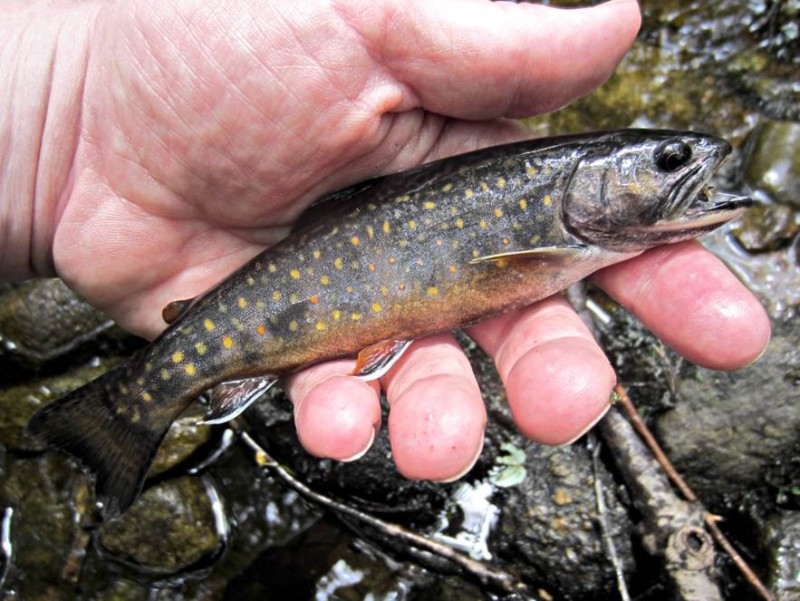Coalition working to protect Angeline Brook’s native sea-run brook trout
The Coalition and the Westport Land Conservation Trust (WLCT) are a step closer to protecting Angeline Brook, home to one of the most important remaining native sea-run brook trout populations in southern New England.

Angeline Brook in Westport is one of the few remaining places around Buzzards Bay where native sea-run brook trout live. (Image: Robert Golder)
Coalition staff recently worked to secure an $85,000 grant that was awarded to WLCT this month by the Massachusetts Conservation Partnership Program, which helps land trusts acquire land for conservation or recreation.
This funding will be put toward a project to forever protect 50 acres of forested land along Angeline Brook in Westport. Angeline Brook, which flows to the west branch of the Westport River, is a coldwater stream that provides a home for native sea-run brook trout, also called “salters.”
Eastern brook trout are on the decline everywhere because of land use changes and development, particularly along the coast. Sea-run brook trout, which migrate between salt water and fresh water, were once common throughout coastal New England, but today they only survive in a few locations. There’s only a limited amount of sea-run brook trout habitat left in southern New England – and Angeline Brook is one of those places.
Sea-run brook trout are vulnerable to development because they can only live in clean, cold freshwater streams that are free of dams and other barriers. In fact, the presence of sea-run brook trout in a stream like Angeline Brook is an indication of very clean water and pristine habitat. Protecting forests that grow along coldwater streams helps keep water temperatures cool and reduces polluted runoff that can harm the water’s health.
We want to protect Angeline Brook and the forests that surround it so sea-run brook trout can thrive. By conserving these forests, we’ll also create more places for people to get outside and explore. This project will expand the popular Herb Hadfield Conservation Area to create a greenway corridor along Angeline Brook where people can hike, fish, and enjoy the outdoors.
The Coalition frequently works with local communities and land trusts like WLCT to help secure funding to protect important natural areas across Buzzards Bay. For this project, the Coalition identified the properties to protect, negotiated contracts, prepared grant applications, and received federal funding from the U.S. Fish & Wildlife Service. Once these properties are purchased for protection, WLCT will own the land, and it will become part of their network of protected places in Westport.
Update: The Coalition and WLCT completed this project in March 2016.